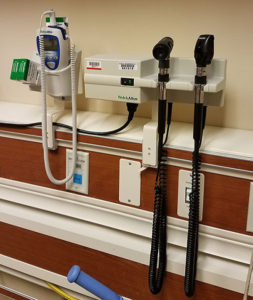 As the nation’s hospitals strain to keep up with the demand to care for COVID-19 patients, it seems almost unfair to ask how much all of this treatment will cost. Still, we know that the costs will be high, both for the care itself and for what health insurers, employers and consumers will end up paying.
As the nation’s hospitals strain to keep up with the demand to care for COVID-19 patients, it seems almost unfair to ask how much all of this treatment will cost. Still, we know that the costs will be high, both for the care itself and for what health insurers, employers and consumers will end up paying.
In a recent report, the health insurance marketplace Covered California projected that the one-year costs of testing and treatment related to COVID-19 could range from $34 billion to $251 billion. These new costs could cause health insurance premiums for individuals and employers to rise by 40% or more next year in the absence of federal action, the report said, adding that insurance premiums would increase because insurers would want to recoup any losses from the pandemic this year and plan for any future losses they might incur next year.
Covered California sent its report, “The Potential National Health Cost Impacts to Consumers, Employers and Insurers in the Commercial Market Due to COVID-19,” to Congress. That can allow journalists to follow what steps Congress or the states take to protect consumers from pandemic-related costs in the coming months.
Given the high costs of care and the amount of disruption that the pandemic has already caused hospitals nationwide, there may not be much of an incentive to pursue the fight — at least for the time being — to reduce hospital costs, as some have noted. Take, for example, an exchange on Twitter on March 31 between two experts on health care costs.
Ugh. I think this is really likely. Whatever political will there may have been to do something about market power and pricing abuses in health care will have evaporated in the aftermath of the covid-19 crisis. This means we are going to have to move to regulating prices. https://t.co/MZAJRJwBR1
— Martin Gaynor (@MartinSGaynor) March 31, 2020
Paul Hughes-Cromwick is an economist at the research and consulting organization Altarum and Martin Gaynor is a professor of economics at Carnegie Mellon University and former director in the Bureau of Economics at the Federal Trade Commission.
If, as they suggest, the issue of hospital prices gets pushed to the background, it’s still a worthy cause to track and report on what health care providers charge.
In a new AHCJ tip sheet, we outline five reasons hospital charges need more scrutiny. Perhaps by this time next year, we’ll be able to cite a sixth reason: what hospitals charged for treatment of patients infected with the coronavirus. This list is by no means exhaustive because it leaves out what effect any potential payment reform ideas, including Medicare for All, single-payer or a public option, would have on hospital prices. And, it leaves out the costs of coronavirus care, because those costs are not yet known.
For now, here are five reasons to track hospital prices:
- What hospitals charge affects consumers who are uninsured, who get surprise medical bills or struggle to afford out-of-network care.
- Research shows that what hospitals charge had risen dramatically from 1996 through 2016 by four or five times over what Medicare paid. Since then, hospital charges have leveled off or modestly declined in recent years when compared with Medicare payments, but they remain high compared with what employers and commercial health insurers pay for hospital care.
- An analysis last year of what hospitals charge, done by researchers at RAND Corp. on behalf of employers in 25 states, showed significant price variation between what Medicare pays and what commercial health insurers and employers pay for hospital care. These variations have prompted some employers to seek better value and higher quality care by contracting directly with hospitals.
- Any focus on hospital charges harkens back to groundbreaking research that health economists published last year in the Quarterly Journal of Economics: “The Price Ain’t Right? Hospital Prices and Health Spending on the Privately Insured.”
- Focusing on what hospitals charge and what employers and health plans pay for hospital care is important for journalists writing about the Trump administration’s plan to require hospitals and health insurers to report the prices they charge to consumers.








